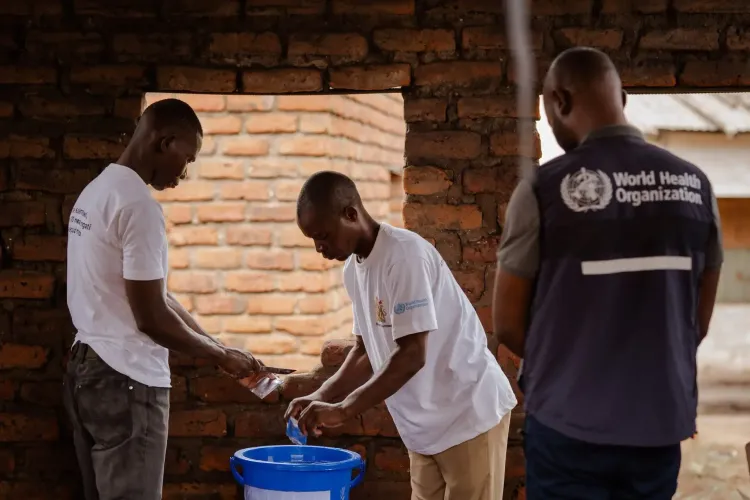Angola's Cholera Fatalities Exceed 300

Synopsis
Key Takeaways
- Cholera death toll in Angola exceeds 300.
- Total confirmed cases reach 8,141.
- Government has vaccinated 925,026 people.
- 77 treatment centers and 64 rehydration centers established.
- Cholera linked to poor water, sanitation, and hygiene.
Luanda, March 21 (NationPress) The number of fatalities due to the cholera outbreak in Angola has now reached 313, with a cumulative total of 8,141 confirmed cases, as reported by the nation's Ministry of Health.
On Thursday, the country recorded 15 additional deaths, marking the second-highest daily toll since the epidemic began in early January, following a peak of 17 deaths on March 15.
The outbreak has continued for more than 70 days, with daily cases consistently exceeding triple digits since March. Areas affected include Luanda, as well as previously impacted provinces like Bengo and Icolo e Bengo, along with recent surges in Cuanza Norte and Benguela.
During a press briefing in Luanda, Health Minister Silvia Lutucuta announced that 925,026 individuals have been vaccinated, achieving 86 percent of the targeted population, according to Xinhua news agency.
She noted that the government has set up 77 cholera treatment centers in the most affected regions and established 64 oral rehydration centers to address the crisis.
The World Health Organization identifies cholera as an acute diarrheal infection resulting from ingesting food or water contaminated with the bacterium Vibrio cholerae. It poses a significant global public health challenge and highlights issues of inequality and insufficient social and economic development. Access to safe water, basic sanitation, and hygiene is crucial for preventing cholera and other waterborne illnesses.
Most individuals infected with cholera present mild to moderate diarrhea and can be treated with an oral rehydration solution (ORS). Nevertheless, the condition can escalate quickly, making prompt treatment essential for saving lives. Severe cases require intravenous fluids, ORS, and antibiotics.
Notably, most people infected with V. cholerae may remain asymptomatic but can still transmit the bacteria through their feces for 1–10 days. Symptoms typically emerge 12 hours to 5 days post-infection.
While most individuals exhibit mild or moderate symptoms, a small percentage may develop severe acute watery diarrhea, leading to life-threatening dehydration.
Cholera outbreaks are frequent in certain countries, while in others, they occur less often, sometimes with years between events. The disease is often linked to inadequate access to safe water, insufficient sanitation facilities, and poor hygiene practices, which can arise from conflict, population displacement, climate-related events like cyclones, floods, or droughts, as well as a lack of investment in water, sanitation, and hygiene (WASH) infrastructure.
The World Health Organization has reported a steady rise in cholera cases in recent years. As of 2023, there have been 535,321 cases and 4,007 deaths reported across 45 countries.










